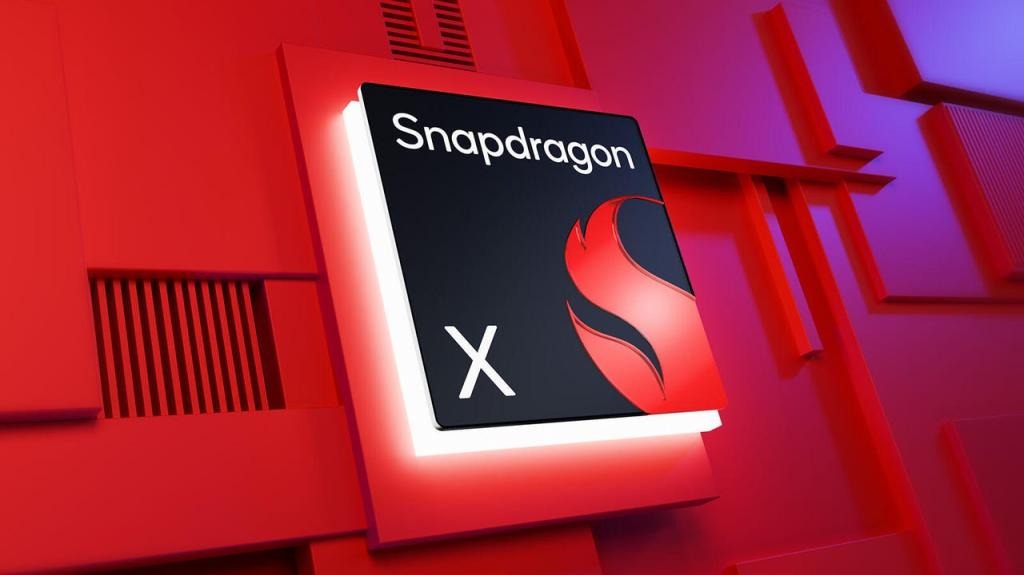Qualcomm's Bold Move to Acquire Intel and Its Impact
Discover how Qualcomm's potential acquisition of Intel could reshape the semiconductor industry and redefine their market positions.

Key Points
- Qualcomm
is exploring the acquisition of Intel to diversify its revenue streams beyond the smartphone market.
- The potential merger faces significant challenges, including regulatory scrutiny and Intel's struggling manufacturing operations.
- Both companies are at a crucial juncture, with Qualcomm seeking growth and Intel attempting to stabilize amidst fierce competition.
The whispers of a potential acquisition between Qualcomm and Intel have sparked intrigue across the technology sector. This prospect could not only reshape the semiconductor landscape but also highlight the ongoing challenges faced by industry titans. In a dynamic environment marked by escalating competition and mounting pressures, the outcome of such discussions could carry significant implications for both companies and the broader market.
Qualcomm, a powerhouse in mobile technology, is exploring a strategic acquisition of Intel, a historic leader in chip manufacturing. This merger could prove monumental, potentially leading to the largest deal in the history of
. As Qualcomm seeks to diversify its offerings beyond the smartphone market, the integration of Intel's extensive portfolio in PCs and data centers presents an enticing opportunity. Qualcomm currently derives around 80% of its revenue from mobile technology, revealing its precarious reliance on a fluctuating market.

The backdrop to these acquisition talks has not been without challenges. Intel, once synonymous with innovation in the semiconductor sector, is grappling with a dismal period. This has been accentuated by losses in its contract manufacturing unit and missed opportunities in the generative AI revolution, particularly after passing on a significant investment deal with
.
As Intel combats a diminished market cap—now below $100 billion—competitors like NVIDIA have surged ahead, capitalizing on unprecedented demand for AI technologies. Analysts have voiced skepticism about Qualcomm's ability to successfully acquire and integrate Intel, primarily due to Intel's struggling foundries. Qualcomm has no prior experience in running semiconductor manufacturing plants, relying heavily on external partners like TSMC. This lack of in-house fabrication capabilities raises questions about its readiness to assume control over Intel's complex manufacturing operations.
Examining the Merger Implications
The implications of this potential union go far beyond simple diversification. Should Qualcomm proceed with the acquisition, it would need to navigate complex regulatory environments, facing potential antitrust scrutiny as it seeks to unite two of the most influential players in the chip industry. Creating a large conglomerate in both the smartphone and PC markets could prompt significant concerns about limiting competition. While Qualcomm is eager to cultivate new revenue streams, it must also contend with robust legal and public relations hurdles that accompany such a high-profile merger.
Moreover, Intel's struggles have been compounded by operational inefficiencies in its manufacturing process, making many analysts question whether the semiconductor giant is worth the investment. Some experts argue that even a friendly acquisition could lead to Qualcomm inheriting considerable challenges. Richard Windsor, a financial analyst, articulates this sentiment, suggesting that while the two companies could fit together theoretically, many elements of Intel might not align well with Qualcomm's operational model.
Shifting Strategies and Market Dynamics
Qualcomm's involvement in the negotiations underscores its critical position in the tech landscape and its drive towards expansion. Under CEO
, Qualcomm has intensified its focus on developing solutions for the automotive and PC markets. This strategic pivot comes as the mobile sector experiences a post-pandemic demand slump, prompting the need for innovative alternatives to sustain growth.
Intel too is in the midst of redefining its strategy, with CEO
at the helm. His initiatives have included potential collaborations to enhance technology manufacturing capabilities, all while the company has made significant layoffs and strategic pivots to stabilize financially. While transformative measures are underway, it remains unclear whether these changes will yield the desired results in a highly competitive environment.
As discussions continue between Qualcomm and Intel, the tech industry is watching closely. The outcome could reshape market dynamics, influencing everything from pricing to competition and subsequent innovation in semiconductor technology. While the prospects are compelling, only time will reveal whether this bold ambition can translate into a successful partnership or if the challenges will prove insurmountable.
This possible acquisition encapsulates the current zeitgeist of the technology sector—bold aspirations met with formidable challenges. Should Qualcomm decide to pursue Intel fully, they will not only be entering a new chapter in their corporate history but also potentially altering the landscape of our technological future.


